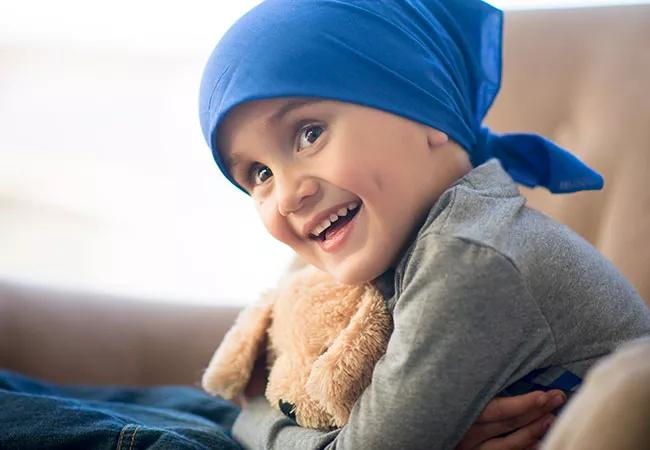More study needed on role of sodium thiosulfate in preventing ototoxicity

Hearing loss, long viewed as an unfortunate but manageable side effect of some treatments of childhood cancers, may have more repercussions than once thought. Survivors with severe hearing loss are more likely than survivors with mild or no hearing loss to have neurocognitive deficits, according to a study recently published in JAMA Oncology. In more than 1,500 survivors, with a median of 20.4 years since cancer diagnosis, severe hearing impairment was linked to deficits in verbal reasoning, verbal fluency, visuomotor speed and mathematics skills.
Advertisement
Cleveland Clinic is a non-profit academic medical center. Advertising on our site helps support our mission. We do not endorse non-Cleveland Clinic products or services. Policy
“We knew hearing loss was happening — particularly in patients treated with cisplatin chemotherapy or radiation to the cochlea — and we knew intuitively that hearing loss could cause neurocognitive deficits, but this was the first article to link them definitively,” says Stefanie Thomas, MD, MS, Director of Adolescent and Young Adult Oncology at Cleveland Clinic Children’s. Dr. Thomas was not involved in the study.
Children with hearing loss from cancer treatment often don’t have the same early intervention as children with hearing loss for other reasons, she says. Therapy for hearing loss sometimes takes a back seat to cancer therapy, which often comes with a demanding treatment schedule.
“Some chemotherapy also has been linked to heart problems, but oncologists have been more diligent about addressing life-threatening conditions like those,” says Dr. Thomas. “Hearing loss tended to be a lower priority because it wasn’t life-threatening. This new study has elevated hearing loss, showing that it has significant consequences too.”
Even before the JAMA Oncology study was published in July 2020, ototoxicity due to cancer treatment was garnering unprecedented attention. Two international phase 3 randomized trials concurrently studied the use of sodium thiosulfate (STS) to prevent hearing loss in children treated with cisplatin. Both the Children’s Oncology Group ACCL0431 study and the International Childhood Liver Tumours Strategy Group (SIOPEL) SIOPEL-6 study reported approximately 50% lower incidence of hearing loss in patients who received STS.
Advertisement
While primary findings looked promising, a subanalysis in the Children’s Oncology Group study raised some concern. The subanalysis indicated a drop in event-free survival in children with metastatic disease receiving STS (although not in children with localized disease receiving STS).
“The subanalysis wasn’t sufficiently powered to link STS and survival, but the association couldn’t be ignored,” says Dr. Thomas. “Because the Children’s Oncology Group study included patients with various types of cancer, we couldn’t be sure of what was happening in that wide array of patients.”
As a result, the use of STS has not been widely adopted. More research is still needed.
To guide future studies, the Children’s Oncology Group surveyed pediatric oncology practices about their otoprotection procedures and perspectives on otoprotection research. Responses came from 44 of 98 institutions surveyed, at sites in the U.S., Canada and New Zealand.
Survey results, which recently were published in Pediatric Blood & Cancer, indicated:
According to Dr. Thomas, who is a member of the Children’s Oncology Group and a coauthor of the recent study, “It’s encouraging that providers support more otoprotection trials involving STS. We need to better understand if STS really does impact survival, and we need the pediatric oncology community to establish consensus guidelines on its use.”
Advertisement
At Cleveland Clinic Children’s, cancer patients have a hearing test before undergoing any chemotherapy and then have repeat screenings before every cycle or every other cycle of cisplatin. For some tumor types, cisplatin dosage is adjusted if a change in the patient’s hearing is detected. Currently STS is used in patients with localized hepatoblastoma. STS is considered for other patients as well, but is not the standard of care.
“Hearing loss affects up to 80% of kids treated with cisplatin,” says Dr. Thomas. “Many of them experience neurocognitive deficits as a result, which can impact their social skills, success in school and work, and overall quality of life. STS may be the best way to prevent these issues, but we need to be sure it’s safe for various patients with various types of cancer.”
Advertisement
Advertisement

Combining advanced imaging with targeted therapy in prostate cancer and neuroendocrine tumors

Early results show strong clinical benefit rates

The shifting role of cell therapy and steroids in the relapsed/refractory setting

Radiation therapy helped shrink hand nodules and improve functionality

Standard of care is linked to better outcomes, but disease recurrence and other risk factors often drive alternative approaches

Phase 1 study demonstrates immune response in three quarters of patients with triple-negative breast cancer

Multidisciplinary teams bring pathological and clinical expertise

Genetic variants exist irrespective of family history or other contributing factors